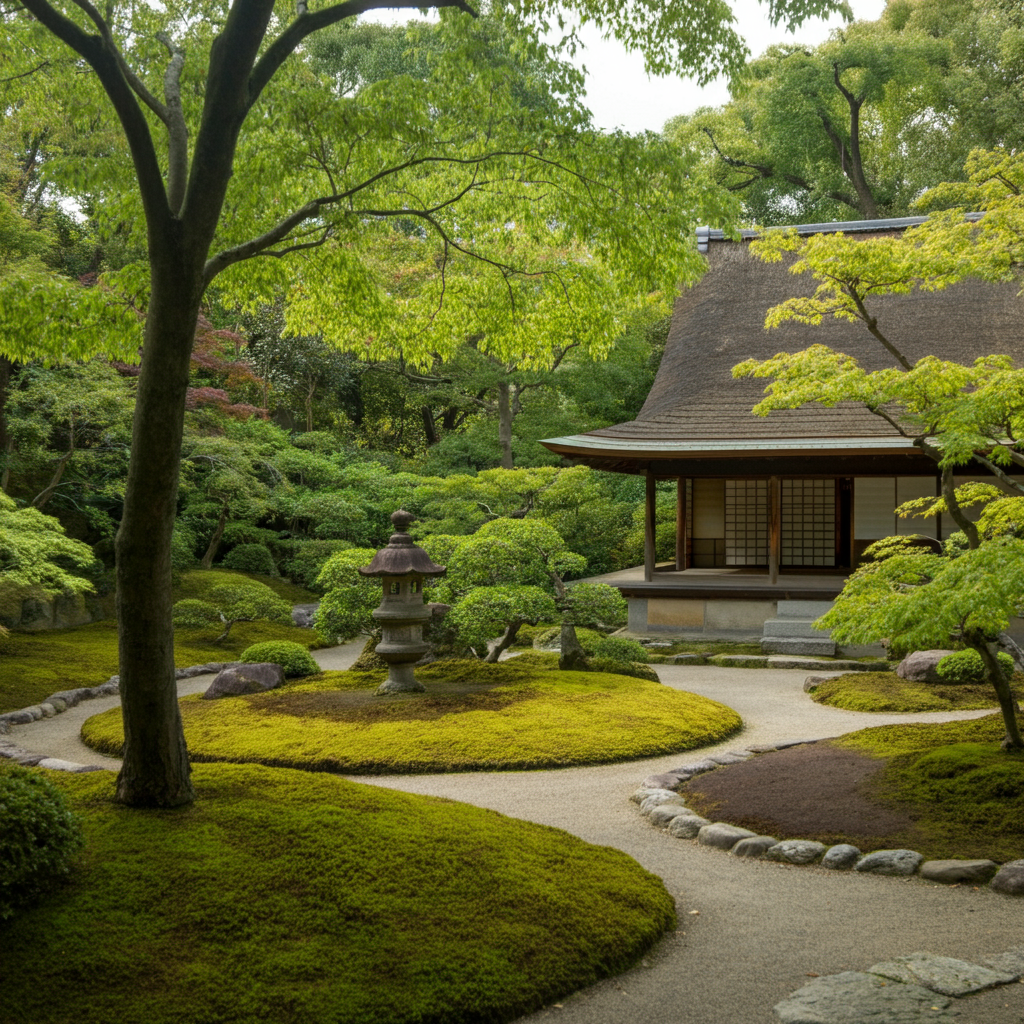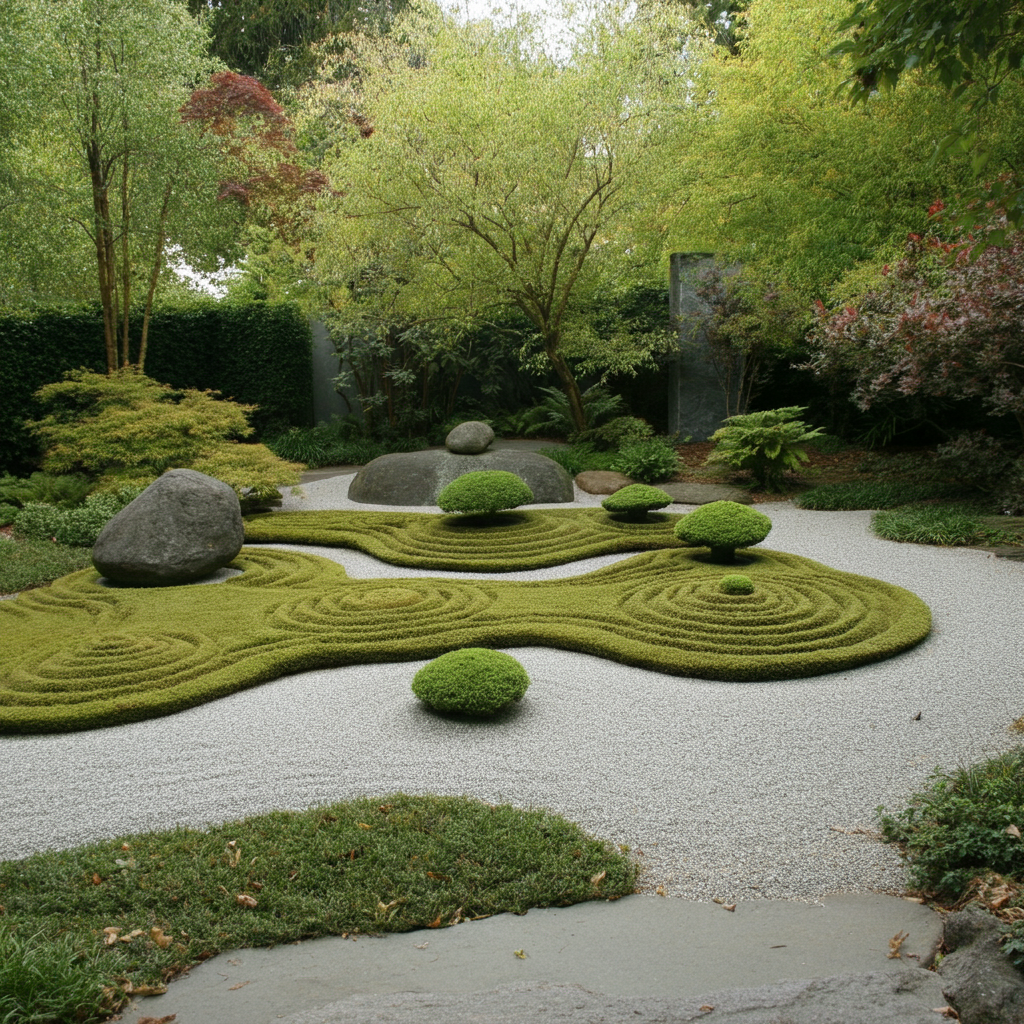
Japanese Zen gardens, also known as “karesansui”, are an important part of Japanese culture and beauty. These gardens are not just for decoration, but they have deep symbolism, reflecting simplicity, harmony, and peace.
Symbolism in Elements

- Stones and rocks: These symbolize mountains, islands, or permanence. They are arranged in an asymmetrical manner, which brings focus on balance and natural beauty.
- Sand and pebbles: These symbolize water and are arranged to look like waves or ripples. The action of combing the sand helps in meditation.
- Moss: This adds a touch of green, which reflects growth, age, and harmony with time Importance of Japanese Zen Gardens
Japanese Zen gardens, also known as “karesansui” (dry landscape gardens), are an integral symbol of Japanese culture and beauty. These gardens are not merely decorative, but deeply symbolic, reflecting simplicity, harmony and peace.
Symbolic Elements Stones and rocks

These symbolize the balance between permanence and impermanence. They are arranged asymmetrically, inspiring meditation and natural beauty.Sand and pebbles: These symbolize water and are beautifully laid out like waves or ripples. This laying out is a meditative activity and promotes mindfulness.Brass: This signifies greenery, age and harmony with time.
Design Principles Simplicity

Zen gardens focus on the minimal, removing unnecessary elements to inspire clarity and inner peace. Natural flow: Paths and layouts emulate natural landscapes, creating a harmonious connection between the garden and its surrounding environment.Perspective: The strategic arrangement of elements draws the eye naturally, creating depth and inviting insight.
Objective and Qualifications

Meditation: As spaces where Buddhist monks meditate, these gardens facilitate the amalgamation of the spirit and a gentle sense of calmness
Interactive Art: A common cause of their engagement is the act of raking the gravel in order to make some shapes to engage in better contemplation.
Peaceful Atmosphere: Everything from the quietness to the serene visual images provides a brief getaway from the everyday hustle and bustle.
Japanese ‘Zen’ gardens very well exemplify the belief of “wabi-sabi” which idolizes the fact that not everything has to be perfect. Such beauty of these elements lay in their design and symbolism as it’s not only pleasing to the eye, but our path to gaining peace of mind and balance within ourselves.
